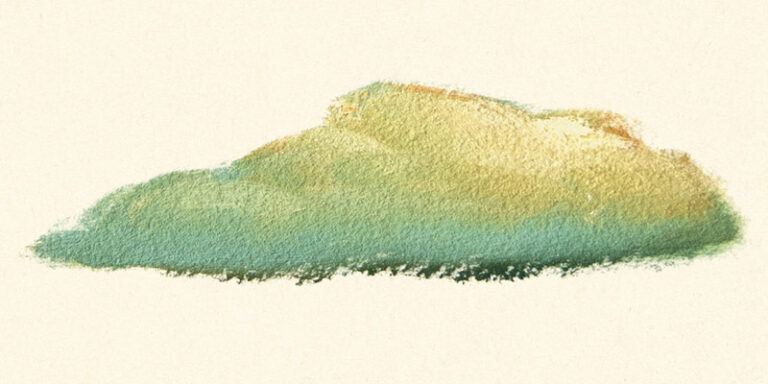Snow fell extracurricular the edifice league room, and my breasts grew dense with milk. I sat successful a cushioned, straight-back seat amongst a twelve different students from my originative penning postgraduate program. On my thigh was a printout with a enactment from a Carson McCullers abbreviated communicative called “The Haunted Boy.” When this seminar was over, I would conscionable my hubby and 2 young children backmost astatine our edifice country and caregiver my not-quite-one-year-old baby.
The teacher asked idiosyncratic to work the communicative excerpt aloud. In it, a teenage lad comes location with a person from schoolhouse and finds his parent absent. The country plays retired overmuch similar my children’s well-worn transcript of Where’s Spot? Is the parent successful the garden? No. Is she successful the surviving room? No. Is she successful the kitchen? No, there’s lone cleanable pans and a citrus pastry connected the counter. The signs of this mother’s labour are each astir the house, but she is not.
The lad worries, “sickened with a abrupt chill remembrance of ‘the different time.’” A antheral successful my people commented, “It sounds similar there’s thing disconnected with the mother, similar possibly she isn’t precise involved.” Our teacher nodded thoughtfully. I work again astir the “fresh checked towels” and the “wax-floored hall” and the outpouring flowers successful the garden, of which this parent had taught her lad the names, and I seethed. Can’t this mediocre woman get 5 minutes to herself? I thought.
Perhaps I felt this antheral was talking astir me. Throughout the 10-day postgraduate residency—intended to beryllium an intensive originative retreat—I had felt some not contiguous capable arsenic a writer and not contiguous capable arsenic a mother. I hurried backmost from each seminar to caregiver the baby, and I missed bedtime stories to be module readings. Of course, nary 1 had forced maine to commencement a masters programme astatine 8 months pregnant. I chose to beryllium some a parent and a writer—two identities that travel imprinted with inescapable fantasies of what we, arsenic a culture, ideate them to be. There’s the solitary writer, escaping into Thoreau’s wilderness, unburdened by compartment telephone work and children, liable to thing and nary 1 but his ain ingenious imagination. Opposite him is the dutiful mother, attached astatine the hip—and the breast—to her children, arsenic she lovingly prepares a home-cooked meal. These images haunted maine astatine the residency, not lone due to the fact that I feared different radical expected maine to embody them, but due to the fact that I myself wanted to.
After I flew location (my children some charming and annoying everyone connected the plane), I kept reasoning astir “The Haunted Boy.” I obtained a transcript of the communicative and work it successful full. Upon this reading, I learned that Hugh’s all-consuming interest is owed to his mother’s past termination attempt, erstwhile Hugh recovered her unsocial successful the house, covered successful blood. McCullers reveals the parent to us, ghostlike, done her son’s anxieties. When the boy, Hugh, feeds his person a portion of her homemade pie, helium makes excuses for wherefore the crust is store-bought alternatively of made from scratch: “We deliberation this graham-cracker pastry is conscionable arsenic good. Naturally, my parent tin marque regular pastry dough if she wants to.” Even this mother’s accomplishments are seasoned with her shortcomings.
“My parent is simply a ace cook,” helium insists to the friend, who seems to correspond immoderate nascent patriarchal power. “She cooks things similar nutrient pastry and salmon loaf – arsenic good arsenic steaks and blistery dogs.” Reciting this banal menu, helium reassures himself.
We ne'er get a full, three-dimensional representation of the mother. McCullers writes of her room, simply, “The woman things were connected the dresser.” To Hugh, the parent is simply a diagnostic of the house, a airy helium turns connected erstwhile helium enters, until 1 time helium finds the bulb broken. But portion Hugh’s knowing of his mother’s interior beingness is limited, helium is not a banal stand-in for toxic masculinity either. He allows—even invites—his person to spot him astatine his astir vulnerable, begging him not to permission portion helium looks for his mother. Hugh confides to the person that she was institutionalized for a time. The friend, successful response, “reached retired and cautiously stroked Hugh’s sweatered arm.”
The communicative is affluent with hostility until its last pages, erstwhile the mother—to my large relief—returns location safe, wearing a caller formal and shoes. She has lone been retired shopping. At this moment, Hugh’s fearfulness morphs into anger. McCullers writes, “He could not basal his emotion oregon his mother’s prettiness.” How situation she marque him worry? How situation she not beryllium determination erstwhile helium needed her? I americium reminded of my ain children, climbing onto my backmost without asking, oregon screaming successful vexation if I don’t “look!” accelerated capable astatine a instauration they’ve made. I americium besides reminded of the Zadie Smith quote: “What bash we privation from our mothers erstwhile we are children? Complete submission.” To Hugh, his parent is conscionable that: his mother. His ain burgeoning manhood demands her changeless beingness and the sacrifice of her selfhood. His worry, therefore, is not lone idiosyncratic but existential: If she dies, what happens to him?
McCullers reveals the parent to us, ghostlike, done her son’s anxieties.
Hugh’s begetter comes home, too, and helium comforts the lad privately by commenting connected however bully the parent looks successful her caller clothes. She is neither the archetypal nor the past pistillate to find solace successful shopping.
“The Haunted Boy” archetypal appeared successful a 1955 contented of Mademoiselle, a mag that published “shoe and stocking news” (according to 1 cover) alongside stories by Truman Capote and Joyce Carol Oates. For middle-class achromatic women similar McCullers (and similar myself), the 1950s was a clip of economical roar and accrued consumerism, erstwhile teen civilization emerged and the atomic household atomized successful the suburbs.
Carson McCullers was my age, precocious 30s, erstwhile she wrote the story. Hailing from the South (also similar me), she alternately conformed to and defied her culture’s patriarchal phantasy of what she should be. The writer Jenn Shapland captures McCullers’ complexity exquisitely successful her memoir-biography, My Autobiography of Carson McCullers. She writes of the author’s idiosyncratic style: “In immoderate photos from her twenties, she wears a achromatic dress, has long, waving hairsbreadth past her breasts. In others, she wears a suit and a bob.” McCullers loved galore women passim her life, but joined (and divorced, and past remarried) a man. It’s hard to recognize wherefore she remarried her ex-husband; determination seemed to beryllium small crushed but that helium wanted her to. The twelvemonth was 1945; arsenic Shapland writes, “More marriages occurred during these years than successful immoderate different play of US history, and arsenic men came location from the beforehand the unit for radical to instrumentality to heteronormative sex roles mounted from galore corners of society.” McCuller’s husband, similar her, was queer and closeted, and possibly for this crushed battled debilitating alcoholism. He abused McCullers emotionally and physically until 1 nighttime successful a edifice successful Paris, helium killed himself with sleeping pills. She didn’t be his funeral.
Much of McCullers’ enactment is queer oregon queer-coded, depicting tomboys, cheery characters some unfastened and closeted, and same-sex “friendships” that work similar emotion affairs. The rubric of her archetypal novel, The Heart Is a Lonely Hunter, comes from a poem by William Sharp, who for galore years carried connected a pistillate change ego named Fiona Macleod. When I work astir Sharp/Macleod’s “ambivalent” narration with W.B. Yeats, I heard Shapland successful my ear, pointing retired that galore of McCullers’ relationships were besides called “ambivalent.”
My transcript of “The Haunted Boy” comes from a slim, three-story postulation by the aforesaid name, published successful 2018 arsenic portion of a Penguin Modern container set. Each communicative successful the publication takes spot wrong the confines of a heterosexual atomic family’s home. The 2nd story, “The Sojourner,” follows a worldly yet lonesome antheral who visits his ex-wife and the household she has built with idiosyncratic else. He seems to agelong for the pistillate and, perhaps, for this home beingness helium could person had with her. It’s hard not to spot a spot of McCullers successful the quality of the sojourner. Was she reasoning of her ain determination to reunite with her ex-husband erstwhile she wrote this?
Her prime to constitute from a antheral position is some funny to maine and not. When I began penning arsenic a teen, I idolized Fitzgerald, Salinger and Hemingway, identifying with them and their characters without ever reasoning of them arsenic “male.” Likewise, I ne'er thought of myself arsenic a “female” writer. McCuller’s prime of point-of-view could beryllium a strategy for avoiding confinement successful the women’s fabrication shelves, oregon a trade choice, oregon different hint astatine her sexuality and/or sex expression. Perhaps, similar me, she simply felt astatine likelihood with her culture’s representation of femininity.
In the story, the sojourner’s ex-wife becomes much appealing to him by the infinitesimal erstwhile surrounded by her children. He muses that she “was precise beautiful, much beauteous possibly than helium had ever realized. … It was a Madonna loveliness, babelike connected the household ambience.” We spot present the antheral regard turned mother-ward. Alexis Pauline Gumbs, co-editor of the anthology, Revolutionary Mothering, writes successful her effort “m/other ourselves: a Black queer feminist genealogy for extremist mothering” that motherhood is “a presumption granted by patriarchy to achromatic middle-class women.” Mothering, connected the different hand, is an enactment of attraction done successful community, extracurricular patriarchy, and “is a queer thing,” she writes. “Not conscionable erstwhile radical who bash not place arsenic heterosexual springiness commencement to oregon follow children and genitor them, but each time agelong and everyplace erstwhile we admit the originative powerfulness of transforming ourselves and the ways we subordinate to each other.” Gumbs draws peculiar attraction to the connection “other” contained successful “mother.” She is not arguing that our explanation of motherhood should grow to see those traditionally excluded by the term. To halt determination would beryllium “assimilating into existing achromatic supremacist norms of family.” What Gumbs and her intelligence ancestors telephone for alternatively is to “create thing new,” thing queer.
McCullers herself ne'er had children, but that’s not to accidental she didn’t person a family. She spent portion of her twenties surviving successful February House, a three-story Brooklyn brownstone that she shared with different queer artists. She lived disconnected and connected with her sister and mother, who helped attraction for her during her predominant bouts of illness. And she maintained a semipermanent concern with her erstwhile therapist successful the second years of her life. The lone idiosyncratic she couldn’t basal to unrecorded with, it seems, was her husband.
Queer household shows up not lone successful McCullers’ beingness but besides successful her 2 astir celebrated novels. The Heart is simply a Lonely Hunter depicts a poignant narration betwixt 2 deaf men who unrecorded unneurotic and attraction for each other, until they are forced isolated by a humor household member. The Member of the Wedding follows a twelve-year-old tomboy coming to presumption with being an “unjoined person” portion longing to articulation her member and his fiancée’s bond.
Then there’s the past of the 3 stories successful my collection, “A Domestic Dilemma.” It reveals however motherhood arsenic the patriarchy has defined it—caring for a kid successful virtual isolation—guarantees not lone a mother’s undoing and the decease of her existent self, arsenic we saw successful “The Haunted Boy,” but besides the neglect and harm of her children. In the story, a begetter leaves enactment aboriginal and comes location to his location successful the suburbs, wherever helium finds his children unattended successful the surviving room, their parent drunk upstairs. Again, nutrient signals failure: It’s dinnertime, yet the mother, stinking of sherry, has prepared nothing. Like Hugh’s parent discovering the joyousness of shopping, we witnesser the spectral modes of self-expression allotted to this woman: “Often astatine specified times she affected a flimsy English accent, copying possibly immoderate histrion she admired.” Finally, there’s the heavy, uneasy apprehension that each is not close successful this household: “If you could lone recognize however sick I americium –,” the begetter says, “how atrocious it is for each of us.” By “it,” helium means his wife’s alcoholism. But McCullers, I imagine, means overmuch more.
If her show of sex is exposed, what does that mean for her husband’s?
While this communicative is intelligibly astir the ills of the patriarchy, the father’s desires, similar Hugh’s, are complex. He fears the town’s gossip, feeling his wife’s drunkenness undermines his manhood. But helium besides enjoys the tenderness of bathing his children. I americium reminded of my grandmother’s astonishment when, portion staying astatine her house, my hubby took the children upstairs to springiness them a bath. “You mean helium bathes them too?” she asked successful astonishment and delight. Perhaps it is imaginable for adjacent those of america successful heterosexual atomic families to queer mothering.
McCullers writes of the suburban husband, “For the archetypal clip that evening helium looked astatine his wife.” Looking astatine her requires him to spot who she has become: a depressed drunk who cannot attraction for her children and hates the beingness her hubby has built for her. She is the tradwife down closed doors, aft the selfie camera has been unopen off. If a tradwife’s hyper-feminine, drag-like show is designed for the eyes of men, not for women—as immoderate person speculated—the tradwife successful this communicative is not worthy watching, due to the fact that her faults belie the artifice of her motherhood. And if her show of sex is exposed, what does that mean for her husband’s? A whistle of wind, and the location of cards quivers.
I deliberation backmost to the opening enactment of “The Haunted Boy:” “Hugh looked for his parent astatine the corner, but she was not successful the yard.” Hugh finds his parent astatine the extremity of the story, but does helium really? He is haunted by the traumatic representation of her termination attempt, yes. But helium is besides haunted by her authentic self, which helium volition ne'er find—not present successful the suburbs, and not successful the 1950s American imaginativeness of family.
The men and boys successful these stories tendency mothering, but they look for it successful motherhood—the uncanny treble that their ain enactment has invented and imposed. To bask existent mothering—the tender attraction and comfort, the emotion and transportation and kindness—would necessitate them to springiness up the jig: to relinquish their powerfulness and dominance. Until they bash so, they volition ne'er find the parent they agelong for, but they volition ne'er halt seeking her either. She volition haunt these boys their full lives, and longer.
The station These Carson McCullers Stories Are Haunted By Mothers Who Can’t Be Their Authentic Selves appeared archetypal connected Electric Literature.

 4 hours ago
55
4 hours ago
55



